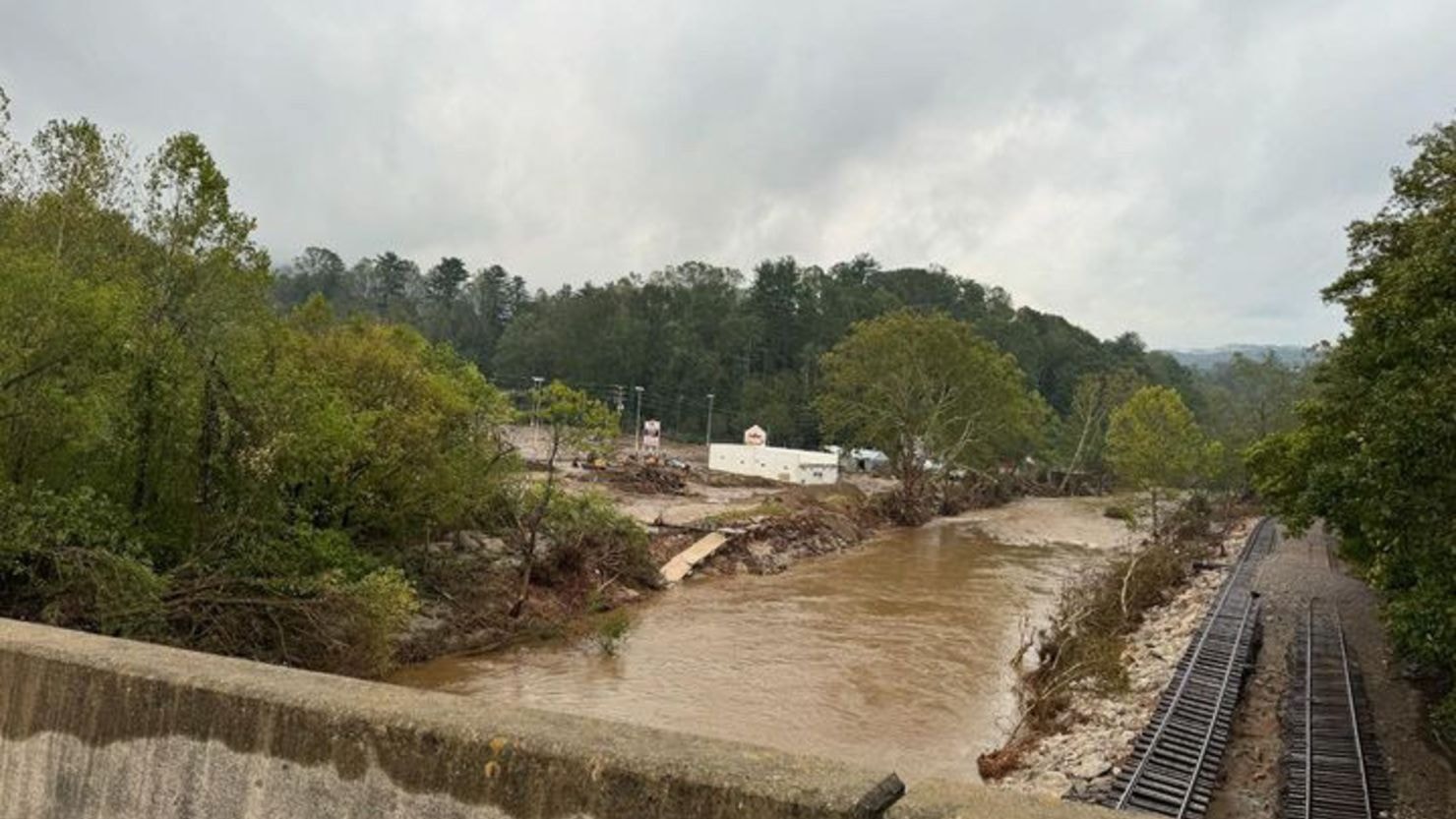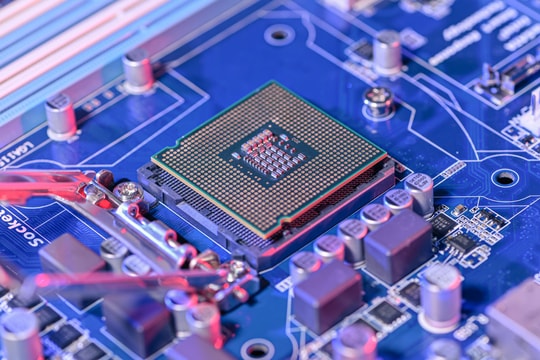Why did Hurricane Helene cause a global semiconductor chip crisis?
Hurricane Helene devastated Spruce Pine, the world's purest quartz "capital," severely disrupting the supply of a key raw material for the global chip industry. The disaster caused significant disruptions in the chip supply chain, affecting many industries.
Deep in the Blue Ridge Mountains outside Spruce Pine, North Carolina, a town of fewer than 2,200 people, lie two mines that produce the world’s purest quartz, formed in the area some 380 million years ago. The material is a key component in the global supply chain for semiconductor chips, which power everything from smartphones and cars to medical devices and solar panels.

But operations at these facilities have been halted since Hurricane Helene swept through the southeastern United States recently, causing historic flooding and mudslides, cutting off roads and power, and endangering millions of residents.
Hurricane Helene: New challenges for global chip supply chain
Before the storm hit, Sibelco and The Quartz Corp, two giants in the quartz mining industry here, had to make the decision to temporarily suspend operations. Now, with the storm passing, both companies are racing against time to restart their mines. However, the extent of the damage remains unknown, and how long it will take to get the mines back to normal is still unknown.
Manufacturing facilities in the region are facing numerous challenges as a result of the disaster. Flooding, power outages, damaged roads and communication disruptions have paralyzed production. Particularly worrying is the loss of contact with many local employees who are crucial to keeping the plants running.

Supply chain experts say it could take weeks to get mines back online, which could lead to a shortage of semiconductor chips and a price spike at a particularly bad time for the tech industry, as Silicon Valley giants pour billions of dollars into semiconductors to power their artificial intelligence (AI) systems.
The Sibelco and The Quartz Corp mines in Spruce Pine are at the heart of the semiconductor and solar panel industries, and without quartz supplies from there, the entire modern technology supply chain would be in serious jeopardy, according to Seaver Wang, co-director of the climate and energy program at The Breakthrough Institute.
Meanwhile, Spencer Bost, CEO of Downtown Spruce Pine, could not believe his eyes when he saw the extent of the devastation that the storm caused to the town. He shared with CNN: "The situation here is really terrible. We still do not have exact information about the damage to the mining companies, but with what is happening, I am worried that it will take a long time for everything to return to normal. Roads are destroyed, houses are ruined, and people's lives are completely turned upside down. Even schools have been closed, causing many difficulties for students."
Sibelco, the Belgian company that owns the Spruce Pine mine, the region’s largest employer and a pillar of the Spruce Pine economy, is facing unprecedented challenges. While the majority of its employees have been accounted for, the company is still working to contact the remaining employees. The incident has not only affected production but has also caused great concern for the local community.
“Please be assured that Sibelco is actively cooperating with government agencies and third-party rescue and recovery operations to minimize the impact of this event and restore operations as soon as possible,” the company said.
Quartz Corp, Sibelco's partner in the quartz mining business at Spruce Pine, has been left in a difficult position since the storm. The company, jointly owned by a French and Norwegian mining group, has acknowledged that the storm's damage is "very serious" and that it is not yet in a position to provide a specific timeline for restoring operations.
“We are focused on ensuring our employees and their families are safe while every effort is made to contact those who remain unreachable. Additionally, our teams are joining local task forces to try to restore the most basic services and bring additional supplies to Spruce Pine,” The Quartz Corp said in a statement.
Quartz: A Rare Ingredient for the Semiconductor Industry
Quartz is an essential ingredient in semiconductor manufacturing. Its purity is important to avoid damaging the chip.
“You’re building incredibly complex chips, in some cases 100 billion transistors, 100 billion tiny machines, on a chip the size of your thumbnail,” said Gregory Allen, director of the Wadhwani Center for AI and Advanced Technology at the Center for Strategic and International Studies. “One atom out of place can cause a defect that will ruin the chip.”
Although quartz is found in many places around the world, the ultra-pure quartz, considered the "diamond" of the semiconductor industry, is concentrated mainly in the mines of Spruce Pine. With its exceptional purity, quartz from Spruce Pine accounts for an astonishing 80-90% of the global supply, a figure that is kept secret by industry experts. It is this special quartz that has become an indispensable raw material for the production of microchips, supplied to large semiconductor manufacturers such as the Taiwanese chip giant TSMC.
Some chipmakers can sustain operations for a few weeks thanks to their reserves of pure quartz. However, if the mine closures continue, the global semiconductor industry will face a serious chip shortage. Although conventional pure quartz can be substituted, the world's supply of this type of quartz is limited and not enough to meet the industry's huge demand.
"I expect there will be pauses and disruptions in the supply chains of major chipmakers while they wait for these mines to reopen," said David Bader, professor and director of the Data Science Institute at the New Jersey Institute of Technology.
Furthermore, even when mines can reopen, they still need local infrastructure, such as roads, to get products to customers.
A semiconductor shortage will bring many industries to a halt. The global chip shortage in 2021 caused by the Covid-19 pandemic means that automakers are building nearly complete cars that cannot be shipped because they lack the chips to power important features, pushing up prices.
Regarding this issue, Mr. Gregory Allen said: "Most of the US economy, to some extent, depends on the semiconductor industry as an important source of input."
Meanwhile, Mr. Seaver Wang commented: "This quartz mine is considered a national strategic asset and I think the federal government will do everything to put it into operation as quickly as possible, everyone knows this mining complex is very important."

.jpg)



